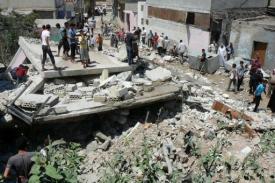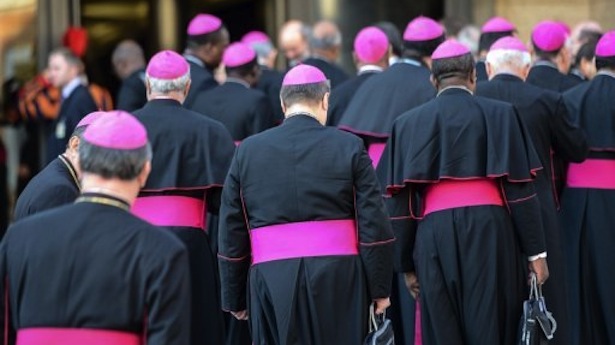
By Amr Khalifa
The Al-Sisi regime, from its unofficial start in 2013, has been about wars: a war on terrorism, a war on the Muslim Brotherhood, and today a new war was declared: on journalism. It is not surprising for those holding pens near and far from Cairo that freedom of speech is under assault in Egypt. Even those who count Abdel Fattah Al-Sisi as a champion of their political cause are quickly realising that the modus operandi of the Egyptian strongman is, at its core, ‘my way or the highway’. The proposed anti-terrorism law crystallises a two year long policy that seeks to tighten, generally, the police state’s grip on Egypt and the autocrat’s hold, specifically, on all matters Egyptian. Mohamed Morsi was removed from power for far less.
It was this writer’s intent, with the sun’s rise on a glorious Sunday, to complete an article on the recent jihadist attack by “State of Sinai” on multiple military and police checkpoints in Sheikh Zuweid, but upon reading details of the proposed law reality delivered a realpolitik sheathed knife to the gut. The mere title of the piece in process: “Sinai, the big lie” sought to uncover the very logarithm of the contradiction between the official army narrative and media reports on the death toll of the insurgency-changing attack. But the proposed law itself, by definition, seeks to make that very examination a crime punishable by two years in prison. Today I awoke to a reality that Egypt had left autocracy behind, and for journalists, it made big strides in the direction of a North Korea-styled “democracy”.
Article 33 of the proposed law, likely to be passed with extreme urgency in the current hyper-nationalist climate on the heels of the deadly attack, is very clear. “Those who intentionally write or publish untrue news relating to terrorism operations shall be punished with imprisonment of no less than two years”. It further defines “untrue news” to be that which “contradicts official press releases by concerned party”. The article is vague enough and sufficiently inclusive to cover any Egyptian security entity that deals with matters of terrorism. For all intents and purposes, this law presents journalists covering Egypt with the following choices: embody the government narrative or move at your own peril in the direction of calling a prison cell’s pavement your home for two years.
The regime’s stance is admirable in its virtuoso bluntness; it is a style consistent with Al-Sisi’s security paradigm and is as subtle as an Apache striking your home as you soundly sleep after having published a journalistically sound piece.
There is no doubt that Egypt is not alone in seeking to protect what it deems as national security matters from the prying eyes of the fourth estate. Matters relating to the NSA, Edward Snowden, and citizen privacy have made the issue one for our times. But this is not what is happening in the Egyptian sphere. Al-Sisi and his ultra-hawkish advisors understand well that he came to power on the wings and a prayer of a defence of stability, a security agenda and a reduction of terrorism on Egyptian shores. But the past two years have killed hundreds of policemen, military personnel and shown Al-Sisi incapable of bringing to bear his chief goals. Indeed, the events of the past week: the assassination of Hisham Barakat, the deadly assault on Sheikh Zuweid, Sinai and resultant military operations that have killed 205 in three days, according to official narrative, have only added a huge exclamation point to Al-Sisi’s systematic security failure.
Naturally, when an uber-draconian law is quickly penned into existence to shut down accurate reporting of an increasingly troubling security landscape, there can be no suspicion as to what the forces at play are. For many months the Sinai Peninsula has been an impenetrable territory for journalists, Egyptian and foreign alike, and that is troubling on two levels. Those who, through difficult and dangerous work, are able to acquire accurate information of the Sinai must think long and hard about publishing, as journalists like Ahmad Abou Draa have already faced arrest for publishing a counter-narrative. The accusation in that specific case related to publishing information about the armed forces, long an offence punishable by military justice. To buttress claims of danger to journalists operating in the Egyptian sphere, one only need look at the recent case of Spanish journalist Ricard Gonzalez who had to escape Egypt recently or be faced with imminent arrest.
But, under the new law, the mere reporting of death toll figures by reputable media outfits contradicting the official narrative will result in at least two years behind bars. Respected news sources such Reuters, AP and the BBC all reported death toll figures for last week’s more than triple that of official figures of 21 soldiers killed – 17 in the original army reports and an additional four bodies found days later. The regime makes it no secret that these reports constitute a media war, in addition to the terrorism war they are fighting. “A non-truthful image” of the campaign in Sinai has been portrayed by the foreign and local media, Al-Sisi told a gathering of Armed forces leaders on Saturday. So important is this countering of that image that the armed forces saw it fit to issue a two minute film to beat “State of Sinai” to the punch vis-a-vis the Sheikh Zuweid battle.
Make no mistake, Al-Sisi’s vision of the world is very much black and white: you are either with us or against us, and in Al-Sisi’s eyes any journalist publishing figures, opinions or facts contrary to the official narrative is against both the Egyptian state and his very person. The proposed law is not a warning, but it is the very bullets to be used to silence freedom of speech in a nation that has never known it in its modern era. There can be no question that without a political counterweight to Al-Sisi, and there continues to be none two years into his reign, matters will only continue to deteriorate. Nonetheless, developments this week, along legislative lines, put many journalists looking to paint as complete a picture as possible to readers, both Egyptian and foreign, in immediate harm’s way.
For those bearing a pen as their only camera, Egypt’s anti-terrorism law is nothing short of a noose. To operate in the coming period, the choices for journalists are to whisper sweet lies or speak loudly and suffer the consequences.
Al-Sisi’s black and white universe only offers stark choices.
I choose to write.
Amr Khalifa is freelance journalist and commentator recently published by Ahram Online, Mada Masr, Muftah, the Tahrir Institute, and Arab Media Society. You can follow him on Twitter @cairo67unedited


